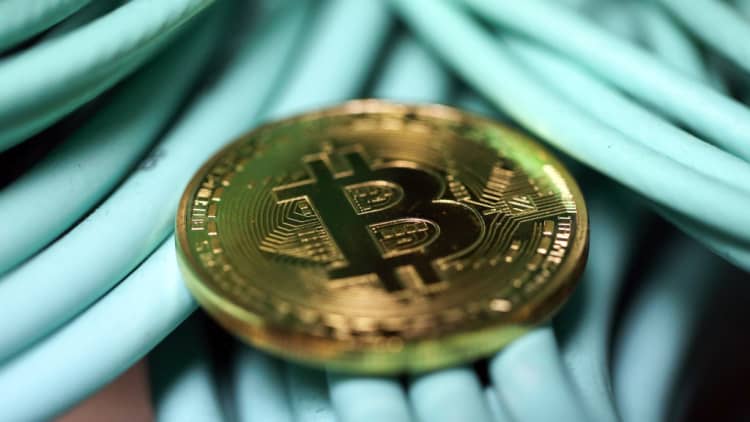
North Korea is trying to steal bitcoin and other virtual currencies to avoid sanctions and fund Kim Jong Un's regime, according to a report.
The report, published Monday by cybersecurity firm FireEye, found that North Korean hackers had targeted at least three South Korean cryptocurrency exchanges with the suspected aim of stealing the digital tokens.
According to FireEye, hackers used spear phishing — a fraudulent method of sending emails to make them look like they were sent by someone you know — and dispersed malware to obtain virtual cash illicitly.
Hackers affiliated with the North Korea have previously been accused of using cyberattacks to target banks.
FireEye logged suspicious activity affecting the exchanges over several months. In April, four wallets on the Seoul-based cryptocurrency exchange Yapizon were compromised, but could not be clearly linked to North Korean involvement. Later in May, the firm monitored a spear phishing attack that successfully compromised an exchange.
Governments of all kinds grapple with cryptocurrency
Bitcoin has surged in price and popularity this year, and reached an all-time high of $5,103 earlier this month.
But the asset is highly volatile. Its value dipped more than $1,000 within three days following China's decision to ban initial coin offerings (ICOs), which allow start-ups to raise funds by selling new digital currencies.
The Chinese government took a notably harsher stance on Monday, after it was widely reported local bitcoin exchanges would be shut down by authorities. This saw the price hit a low of $4,108 on Monday.

On Tuesday, bitcoin recovered somewhat, and was trading at $4,342 at 1 p.m. London time, up 3.66 percent.
"As bitcoin and other cryptocurrencies have increased in value in the last year, nation states are beginning to take notice," Luke McNamara, senior cyberthreat intelligence analyst at FireEye, wrote in the report.
Several governments have shown increasing interest in virtual currencies as they move out of the periphery and into the mainstream. The U.S. government, for instance, has signaled that securities law could apply to ICOs. Meanwhile, Estonia has said it wants to launch its own cryptocurrency, called "estcoin," via a state-backed ICO.
Australia has also proposed legislation that would bring digital currency exchange providers under the authority of its government financial intelligence agency, in an effort to clamp down on money laundering and other illicit activities.
"Consequently, it should be no surprise that cryptocurrencies, as an emerging asset class, are becoming a target of interest by a regime that operates in many ways like a criminal enterprise," McNamara said.
"While at present North Korea is somewhat distinctive in both their willingness to engage in financial crime and their possession of cyber espionage capabilities, the uniqueness of this combination will likely not last long-term as rising cyber powers may see similar potential. Cyber criminals may no longer be the only nefarious actors in this space."
Dodging sanctions
The U.N. Security Council this week approved a resolution to step up sanctions against North Korea.
The country has faced increasing international trade pressure following its decision to conduct a missile test over Japan earlier this month and its detonation of what it claimed as a hydrogen bomb in an underground test.
According to the FireEye report, sanctions "could be driving" North Korea's interest in cryptocurrencies.
FireEye said the country could be attempting to obtain hard cash in exchange for stolen virtual coins in order to fund the regime.
The value of alone has climbed by 350 percent this year.
The U.N.'s sanctions resolution was subsequently rejected by North Korea.
WATCH: Skeptic admits bitcoin could be a legit currency






